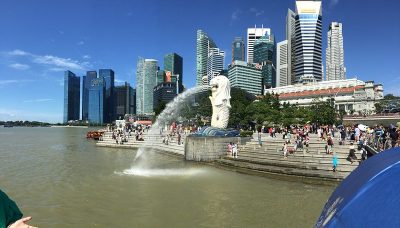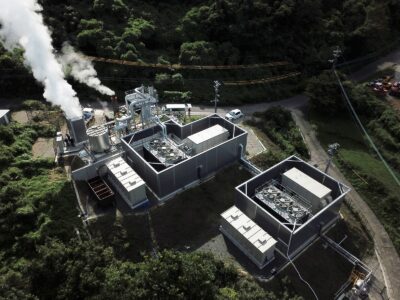Wasabi Energy/ Global Geothermal updates on Kalina licenses in Annual Report
Australian Wasabi Energy provides a corporate overview and - of interest here - an overview on its interest in Global Geothermal Limited, which effectively gives out licenses for Kalina, binary cycle technology for lower heat power generation.
In its recent update in the annual report for the past financial year, Australian Wasabi Energy provides a corporate overview and – of interest here – an overview on its interest in Global Geothermal Limited, which effectively gives out licenses for Kalina, binary cycle technology for lower heat power generation.
In the year Wasabi increased its stake in “Global Geothermal Limited which rose to 94.4% subsequent to the reporting period. Global Geothermal holds the intellectual property rights associated with the Kalina power cycle which has been under development for a number of years.
The Kalina cycle is now gaining acceptance globally as the most efficient process to convert low grade heat into electricity. The Kalina Cycle can deliver up to a 50% improvement in power generating efficiency over the traditional or Organic Rankine cycle. This makes the Kalina Cycle ideal for utilising heat generated from industrial processes, such as steel or cement making, to produce electricity to supplement the otherwise purchased power requirements of the manufacturing facilities.
An important aspect of the Kalina Cycle, because of its efficiency in producing electricity from low temperature heat sources, is that it is ideally suited for bottoming cycles, i.e. extra electricity generation from exhaust gases, flash geothermal plants etc.”
In the announcement Wasabi talks about one licensing agreement with Siemens AG, which constructed the recently started Unterhaching Kalina power plant in Germany. But as far as I am aware of, the company has also granted a license to Icelandic Exorka, which runs the Husavik geothermal power plant.
The report continues, “The (Unterhaching) plant in Germany has a generating capacity of 3.4MW and powers the town as well as provides fluid for the districts heating system. The Husavikur plant in Iceland utilises geothermal heat to produce 2,000 kW of electricity for the local township.
Sumitomo Metal Industries has been utilizing the Kalina Cycle at its steel works since 1999 to produce 3.5Mw of electricity.
A second plant operates at Fuji Oils Tokyo Bay refinery.
In the past year, agreement was reached with Shanghai Shenge New Energy Resources Science and Technology (SSNE) of China to issue them with a licence to use the Kalina Cycle. This is viewed as a major step forward for Wasabi, one that could lead to multiple applications of the Kalina Cycle and further its global acceptance as the preferred process in utilizing industrial waste heat to generate electricity. SSNE, along with Global Geothermal and it’s wholly-owned subsidiary Recurrent Engineering, have already designed and built a 50Kw demonstration plant to be installed in south western Tibet utilizing geothermal power in an area where there is no other source of power.
SSNE paid an initial US$1million of a licensing fee of $2 million and will pay a continuing royalty per KWh of installed capacity of new plants utilizing the Kalina Cycle.
Global Geothermal’s intellectual property rights to the Kalina Cycle are supported by a strong, experienced engineering division, Recurrent Engineering LLC (Recurrent). Recurrent are based in Houston and San Francisco in the US and comprises highly-qualified engineers and technologists who have assisted in the development of the Kalina Cycle. The project team designs the optimum plant and process configuration dependent upon the heat of the energy source and local temperatures.2
Source: Preliminary Final Report for the financial year ended 30 June 2009 via The Sydney Morning Herald











